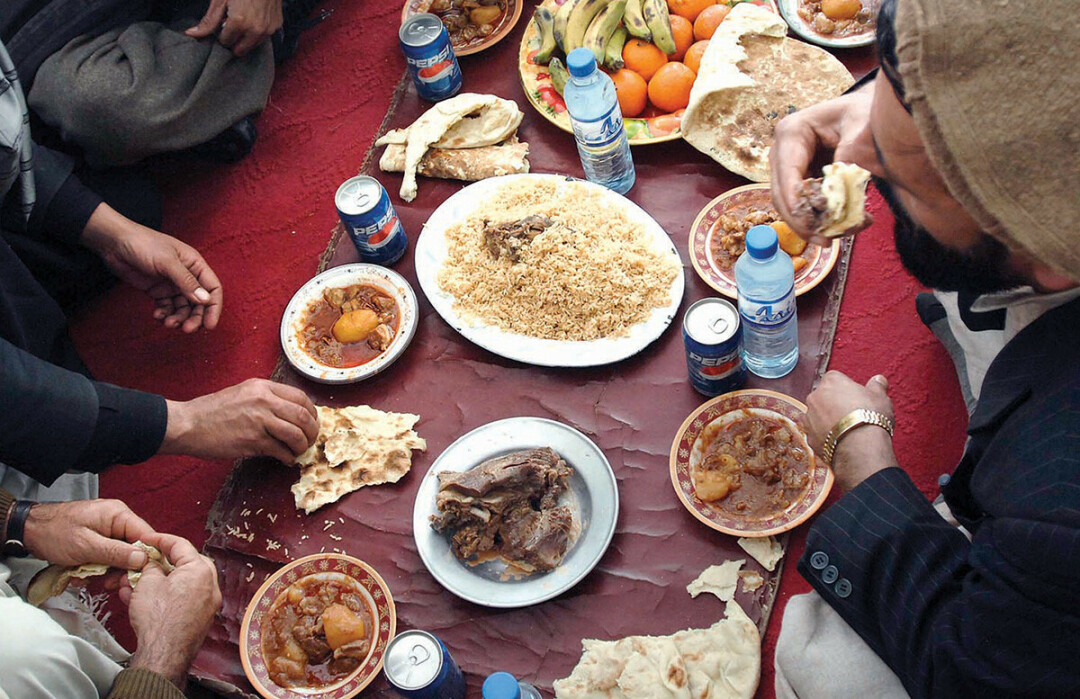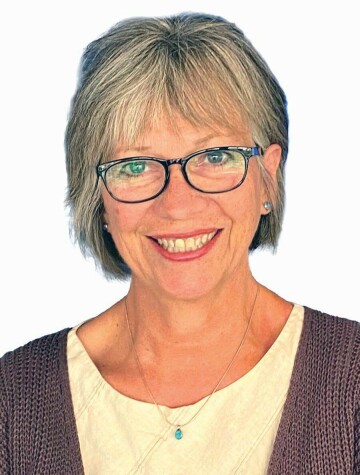COLUMN: Around the Table
how sharing a meal across cultures fosters connections

Marcel met her husband Mark in the refugee camps in the Philippines. They live by choice near the university and have hosted internationals for years. We have always been on the receiving end when she invites us over to meet people from other countries and share delicious international food. Last spring, she invited us to share a meal with the Afghan refugees they were hosting.
Though I was excited for this dinner, I was also a bit nervous to go. I had never actually met anyone from Afghanistan.
It was the last week of Ramadan so we gathered after sunset. When we arrived, we discovered that Zulmi and Mamond had been cooking all day. In fact, they had prepared a buffet of halal food for us. Given how their lives have been upended by being displaced here, it seemed like the generosity was going in the wrong direction.
Having been an English instructor in his country, Mamond had a good command of the language. He has kind eyes. His wife and six children are still in Afghanistan. Zulmi speaks four languages; English is just not one of them. But he managed. He was formerly a national police chief. His two wives and eleven children are also still in Afghanistan. His eyes are harder to read. Now, they found themselves in Wisconsin, where it feels as though spring will never come.
”
My husband’s joking around always helps people relax. At one point, he asked them what they thought was weird about our country. “There is nothing weird,” Mamond replied quickly. “No oppression, no torture. Here is peace.”

JANE JEFFRIES
My husband’s joking around always helps people relax. At one point, he asked them what they thought was weird about our country. “There is nothing weird,” Mamond replied quickly. “No oppression, no torture. Here is peace.” For a moment, we didn’t know what to say. We were unsure whether to ask, but Zulmi then showed us the deep scar around his wrist. The Taliban had shot him, and he nearly lost his hand, but some German doctors managed to save it. Again, I looked at Zulmi’s eyes and tried to imagine.
Now, I had more urgent questions about their lives. Are their families safe? How did they escape? Why were they targeted? There’s so much about them I don’t know. I can’t imagine how difficult it is for them, but I am glad they’re here and safe.
It was easier to talk with Mamond, because language hampered conversation with Zulmi. Zulmi had done most of the cooking, and the food was delicious. How could I communicate to him how honored we were that they are strangers who have made us guests at their table?
As we ate, I looked around the table: Christian and Muslim, Asian and American, Middle East and Midwest. Sitting at the table together is a privilege we underestimate. It helps us find commonalities. It reminds us of what we share. It breaks down walls when you can look in each other’s eyes.
Even though it was sometimes difficult to communicate, we enjoyed being together, breaking bread, laughing, and learning about their country. When we said goodbye, Zulmi simply put his hand over his heart. I could see the affection in his eyes. We did the same. Sometimes, you just don’t need words.
Jane Jeffries is a freelance writer and playwright living in Eau Claire.


















